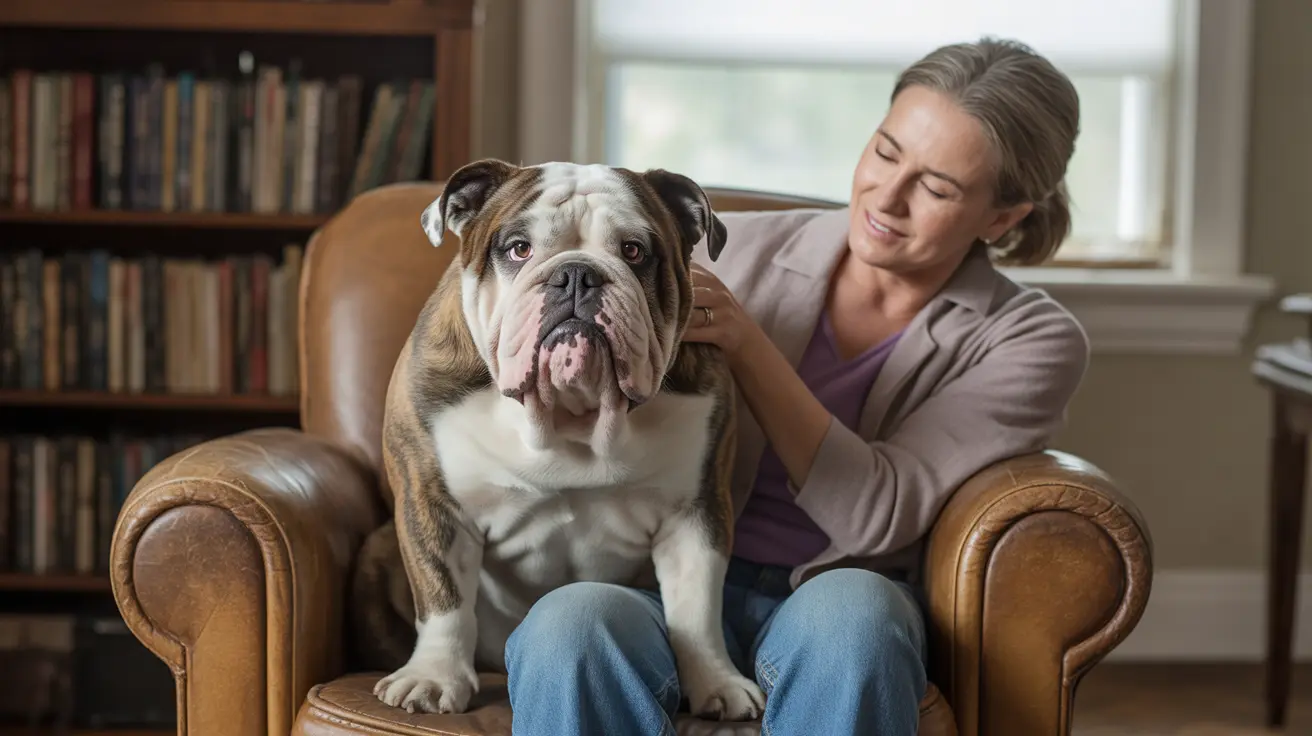If you've ever experienced your dog's unexpected burp right in your face, you're not alone. This surprisingly common behavior can range from amusing to concerning, leaving many pet owners wondering about its causes and implications. Understanding why dogs burp in their owners' faces involves exploring both their digestive physiology and social behaviors.
Let's dive into the science behind dog burping, examine why they might choose to do it near our faces, and learn when this behavior might signal health concerns requiring veterinary attention.
The Science Behind Dog Burping
Dogs primarily burp due to aerophagia - the technical term for swallowing air. This commonly occurs during eating, drinking, or excessive panting. When dogs consume their food or water too quickly, they inadvertently swallow air along with it, leading to the need to release this excess gas through burping.
Brachycephalic breeds, such as Bulldogs, Pugs, and Boston Terriers, are particularly prone to burping due to their flat facial structure and compressed airways. These anatomical features cause them to swallow more air during normal activities.
Why Dogs Burp Near Your Face
Social Bonding and Communication
Dogs are inherently social creatures, and face-to-face interaction is a significant part of their communication repertoire. When your dog burps in your face, they might be:
- Seeking attention or interaction
- Displaying trust and comfort
- Attempting to share scents (a natural bonding behavior)
- Mimicking human behavior they've observed
Proximity and Timing
Often, the face-targeted burping is simply a matter of timing and position. Dogs frequently approach their owners' faces to show affection or seek attention, making it more likely that any burping will occur in close proximity to your face.
Health Considerations and Warning Signs
While occasional burping is normal, certain patterns might indicate underlying health issues:
Normal Burping Patterns
- After meals or drinking water
- During periods of excitement
- Following exercise or play
Concerning Signs
- Excessive or frequent burping
- Burping accompanied by vomiting or retching
- Signs of pain or discomfort
- Loss of appetite
- Lethargy or depression
Prevention and Management Strategies
To reduce the frequency of face-directed burping and maintain your dog's digestive health:
- Use slow-feeder bowls to prevent rapid eating
- Feed smaller, more frequent meals
- Maintain consistent feeding schedules
- Ensure proper hydration
- Address any anxiety or stress-related issues
Frequently Asked Questions
Why does my dog burp in my face after eating or drinking?
This usually occurs because dogs swallow air while eating or drinking, especially if they consume their food quickly. When they approach you afterward for attention, the timing simply coincides with their need to release the trapped air.
Are certain dog breeds more likely to burp frequently or near their owners' faces?
Yes, brachycephalic (flat-faced) breeds like Bulldogs, Pugs, and Boston Terriers are more prone to burping due to their facial structure and airways. These breeds typically swallow more air during normal activities.
When should I be concerned about my dog's burping and see a veterinarian?
Consult a veterinarian if you notice excessive burping combined with symptoms like vomiting, lethargy, loss of appetite, or signs of pain. Immediate attention is needed if burping is accompanied by bloating or unsuccessful attempts to vomit.
How can I reduce my dog's burping caused by swallowing air or eating too fast?
Use slow-feeder bowls, feed smaller portions more frequently, and ensure your dog eats in a calm environment. Consider elevated food bowls for larger breeds and maintain consistent feeding schedules.
Is my dog burping in my face a social behavior or a sign of a health issue?
In most cases, it's a combination of normal digestive processes and social behavior. Dogs often seek close contact with their owners, making face-level burping more likely. However, if accompanied by concerning symptoms, consult your veterinarian.
Understanding why your dog burps in your face helps put this behavior in perspective. While it might not be the most pleasant experience, it's usually harmless and often simply a result of your close bond with your pet. However, always monitor for changes in frequency or accompanying symptoms that might indicate health issues requiring professional attention.






